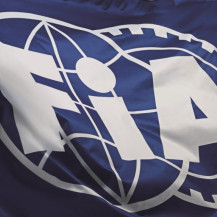
International Historical Commission
FIAInternational Historical Commission
The International Historical Commission (CHI) meets twice a year and provides a forum to discuss concerns and to exchange information between representatives of FIA Member Clubs with a view to furthering the preservation and enjoyment of historic vehicles. In December 2020, Giuseppe Redaelli (ACI – Italy) was elected President of the CHI.
The CHI studies questions concerning legislation and customs issues which affect historic vehicles. The CHI’s Legislation Working Party provides the CHI with regular reports on legislative developments, as well as advice to national Clubs concerned by specific problems facing historic vehicle enthusiasts and the historic vehicle movement in general. It works to ensure legislators support legislation which is favourable for historic vehicle upkeep and use. Particular emphasis is placed on historic cars with regard to registration, taxation, maintenance, road safety, pollution and low-emission zones, as well as historic cars within the collective cultural heritage.
The CHI’s Museums Working Party works closely with the FIA Mobility Administration to further enhance the website for historic vehicle museums around the world. The site showcases museums housing historic cars, motorcycles, trucks and buses, as well as military vehicles in many countries, and may be viewed at: www.fiaheritagemuseums.com . With an easy procedure for updating or adding new museums, the site is growing rapidly and the CHI’s Museums Working Party has begun exploring ways of showcasing specific museums on a regular basis and adding other new features.
The CHI’s Archives Working Party strives to resolve problems facing both public and private automobile-related archives under threat of being lost or destroyed, and to raise awareness of the concerns harboured by archivists who can no longer properly protect or house their own archives.
The CHI President chairs all meetings, which are attended by a representative of the Fédération Internationale de Véhicules Anciens (FIVA). He attends meetings of the FIVA’s Cultural Commission, and he co-chairs a joint FIA-FIVA Relations Committee. This collaboration of reciprocity offers the FIA and the FIVA the possibility to work together to pool resources and expertise, and to speak with a single voice on matters of joint concern.
After the agreement of a joint FIA-FIVA definition of an historic car and after analysis of their handling and maintenance techniques, the “Turin Charter” was ratified by both the FIVA (2012) and the FIA (2013) General Assemblies. Based upon and inspired by other charters, notably UNESCO’s Venice Charter (1964) for historic monuments and sites, the Barcelona Charter (2003) for historic sailing ships, and the Riga Charter (2005) for historic railways, the Turin Charter carries a strong message to legislators concerning historic vehicles, their use, and their protection, particularly in countries which have signed agreements with UNESCO regarding cultural matters.
The CHI reports directly to the World Council for Automobile Mobility and Tourism (WCAMT), and provides a written report at the end of each period. Its members, including the President, are elected each year by the WCAMT after a call for nominations from all FIA Clubs (both sport and mobility).

 Facebook
Facebook Twitter
Twitter